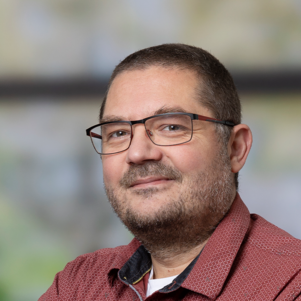Advanced Modelling Gaming and Design
This elective package provides students with state of the art knowledge in modelling, gaming and design. Advanced modelling and gaming are ways to understand, manage and design complex systems.
For whom?
TPM master students and students with closely adjacent backgrounds.
What will you learn?
As a follow on from basic courses on systems modeling and design, this elective package:
- deepens students’ knowledge in the area of modeling and simulation Advanced courses in discrete event simulation and agent based modeling are part of the elective package.
- introduces the fields of simulation gaming and participatory systems Simulation gaming comprises science by design of games that have another objective than pure entertainment. Such games represent a multi-stakeholder situation, which allows the system to be studied and participants to learn from it. Participatory systems leverage the power of ICT to enable and facilitate engagement and empowerment. Participatory systems are large scale socio-technical systems designed with the purpose to provide a technical and social infrastructure to support participation.
Job Specialisation
Modeling, gaming and design are used in many of the organisations that are current employers of our graduates. For example in management consultancies, such as Accenture; companies in the energy sector, such as Enexis or Shell; companies in the transport sector, such as KLM, Prorail or the Rotterdam Port Authority; Ministries, such as the Ministry of Infrastructure and the Environment; institutes for applied research, such as Deltares and TNO. A number of former students who specialised in modeling, gaming and design have set up their own consultancy firms (Initi8, TBA, Vreelandgroep).
Education methods
Written exams and assignments.
Course overview
Note: All courses will be given in English.
Mandatory courses:
-
System Theory, Object Orientation, Discrete Event System Specification, Multi-Formalism Simulation, and RealTime Distributed Simulation will be the core topics of the course. After an introduction to system theory, the inner working of simulation environments will be illustrated on the basis of the DEVS, DESS, and DTSS formalisms. Then, possible integrating of the different formalisms will be shown. Several special topics will be taught, based on the latest research in simulation. This material will be illustrated in intensive and interactive courses. Several simulation topics will be studied by groups of students, who will write a scientific paper, and present their findings in class. These topics can be focused on the MSc program that the students participate in; special topics to study are available for TIL, CoSEM, EPA, Computer Science, and other students. Finally, groups of students will study a simulation package in-depth and discuss the commonalities and differences with other packages. Again, the package chosen can be targeted at the MSc program of the student group.
-
The simulation game design project offers conceptual insights as well as ‘hands on’ experience with simulation-gaming (SG). SG is an established field of practice with proven value for instance in the field of spatial and urban planning, ecology, engineering and design, public administration, business management, learning, research and consultancy. The staggering growth and success of the video gaming industry has triggered the interest in simulation games – from paper based games to video games for learning and policy making - even more. Experienced speakers will give lectures on history, future, design, typology and facilitation of SG. Experts and students will discuss the role of computers and video games, but emphasis is NOT on technology! Students will have ample opportunity to try out a number of (role-playing, board etc.) games that hold powerful messages about decision-making and management. Students are challenged to develop and facilitate their own simulation game to support decision-making, learning, training, business, management and change. In a small group, they will also work on a scientific question related to game design. Besides creativity and enthusiasm, there are no entry requirements. Lectures and workshops will be arranged in a condensed fashion on 10 full days from 9.00 – 17.00. External companies and organizations provide brief problem statements and game requirements, and act as ‘clients’. Students can define their own topic/client. There is a (restricted and conditional) possibility for external participants (from companies, non-profit organizations, other universities) to participate in the course.
Additional information
Please be aware of specific prerequisites per individual course. For SEN9110 the prerequisites are some prior experience in Discrete Event Simulation (e.g. TB233 Discrete Simulatie, EPA1324 Introduction to TPM modelling, or ME44305 System Analysis and Simulation).
Register for this elective
Please fill in your application in My Study Planning and enroll this elective package in Brightspace.
Contact details
In case of questions, please contact the coordinator Igor Nikolic.
